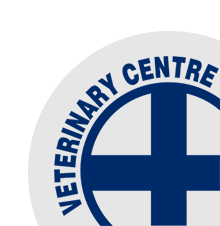Iodine Supplementation
/Iodine is an important trace element required by the growing foetus for metabolic function, brain development, lung development and wool growth. These factors contribute to making deficient newborn lambs weak and very susceptible to cold and stress.
Iodine deficiency can occur due to a low level of iodine in soils/plants but more commonly is due to ingestion of compounds which block the uptake of iodine from the diet. These compounds (called Thiocyanate goitrogens) are found in most Brassica species such as kales and many New Zealand cultivars of clover also contain the compound. Kale and swede bulbs also contain low overall levels of iodine.
South Canterbury and parts of Otago are known to have naturally low levels of iodine in soils and last year we did see some clinical cases of iodine deficiency in newborn lambs in the Waimate district.
Clinical goitre is the classic sign of Iodine deficiency, however less obvious signs may be occurring and could be resulting in a lower lamb survivability. Often this is put down to poor weather at lambing but low iodine could be a contributing factor.
It is important to note that iodine is a requirement for the developing foetus during the last half of gestation.
Testing for iodine deficiency can be difficult. The best test is to collect and freeze 10-15 slinks/dead lambs at birth, this allows us to dissect and weigh thyroid glands to give idea if levels during pregnancy were adequate and guide decisions for the upcoming season.
Supplementation should be undertaken if:
Feeding brassica crops
Goitre has been recorded previously on farm
Significant increase in thyroid:bodyweight ratios previously
Moderate thyroid:bodyweight ratios and iodine deficiency has been noted in the district.
Supplementation options:
As iodine is required for the growing foetus during the last half of gestation, supplementation should be done before and/or during this time. There also can be some positive effects on oestrus behaviour in ewes.
Flexidine:
An oil based slow release injection of iodine.
Ideally given a month before mating. This will provide adequate levels for the ewe at mating and coverage for the growing foetus well through lambing.
If this timing is missed, then can give a half dose at scanning time to provide protection to the foetus.
Give prior to putting onto goitrogenic crops.
LSD (Livestock Survival Drench):
An oral supplement given through a drench gun.
Contains iodine and Vitamin D (some evidence to show may reduce milk fever and bearings), E, A. Also low levels of selenium.
Can be mixed with drenches to be used on the day.
Ideally given 3 doses. Prior to mating, at scanning and prior to lambing.
If not given prior to mating then giving doses at scanning and prior to lambing will provide supplementation for the growing foetus.
If you would like to discuss iodine supplementation or testing then please contact one of us at the Veterinary Centre. If in doubt, collect and freeze some slinks for us to look at this year!


